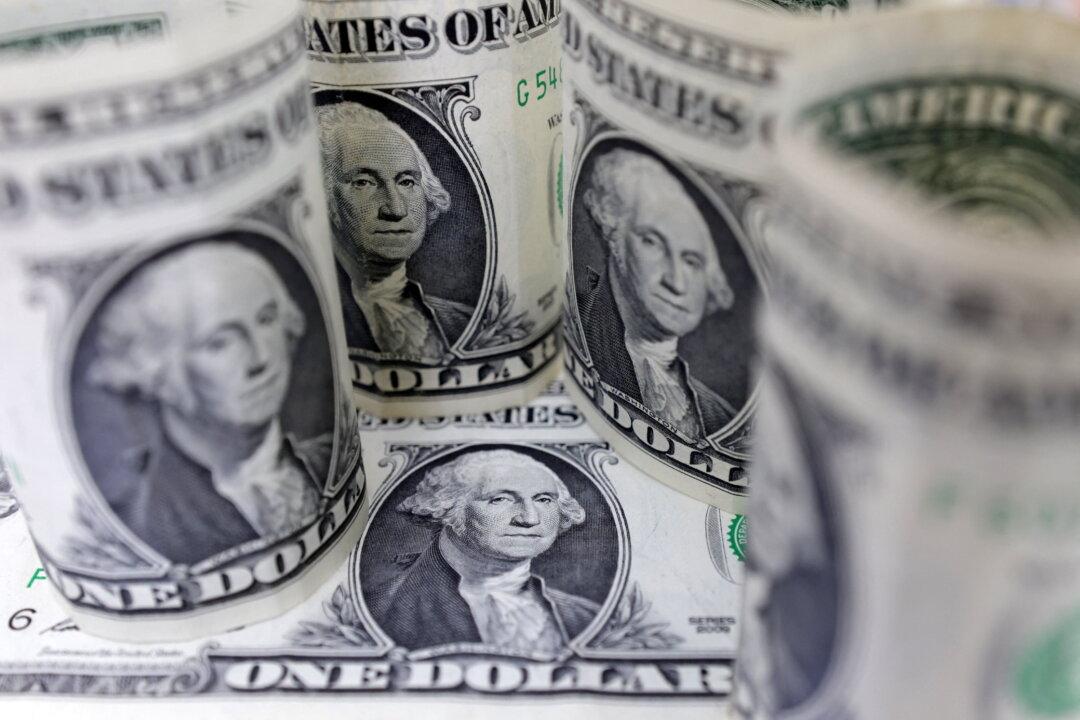LONDON—The dollar dipped on Wednesday as chances faded for a rate hike next week by the Federal Reserve, while the Canadian dollar touched one-month highs as traders amped up bets for the country to raise rates and the Turkish lira hit record lows.
The Australian dollar traded at three-week highs above $0.67 after the Reserve Bank of Australia’s decision to raise the benchmark cash rate to 11-year highs on Tuesday and Governor Philip Lowe signalled more rate hikes in the pipeline, despite the greater risk of an economic downturn.





